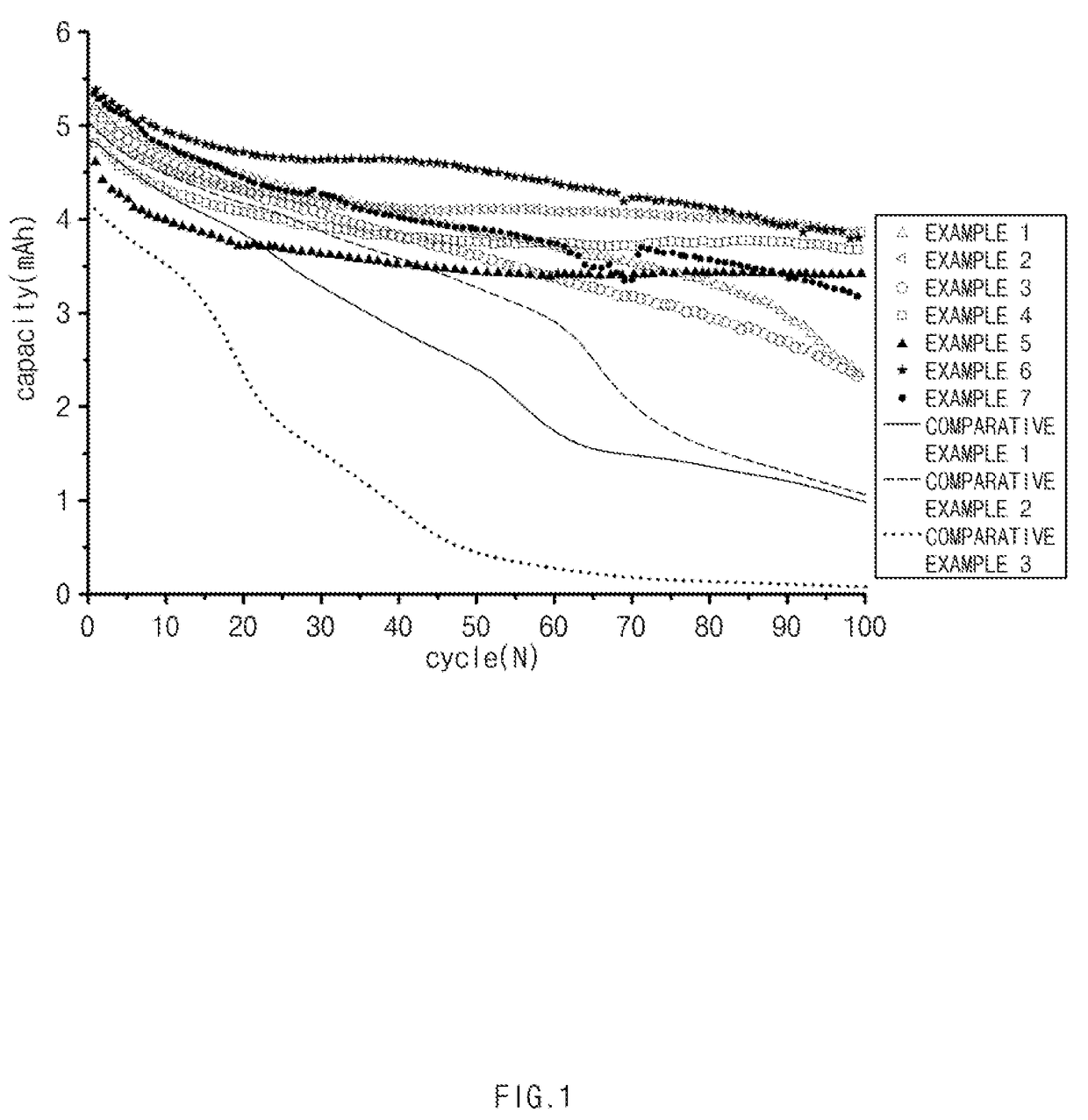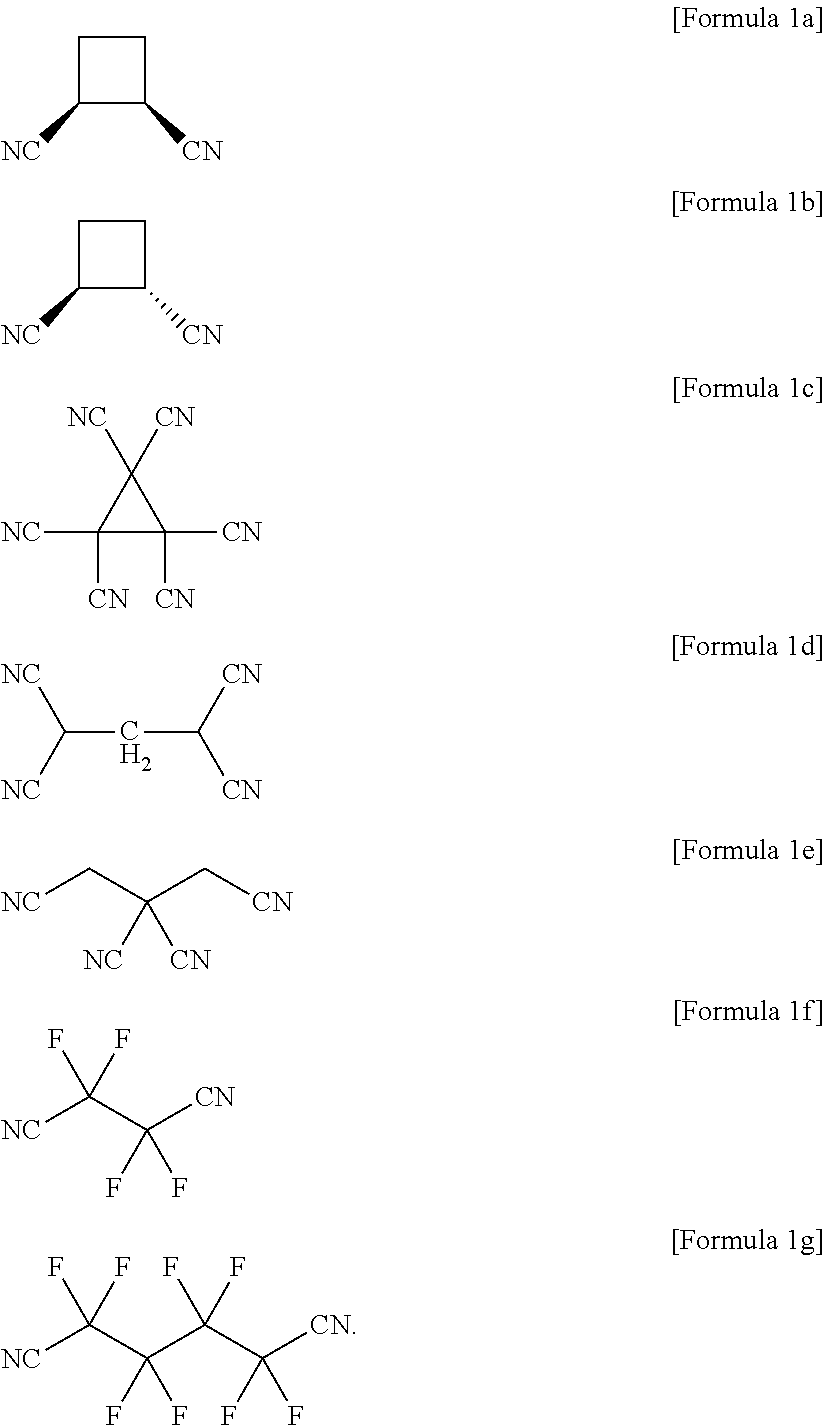Non-aqueous electrolyte solution for lithium secondary battery and lithium secondary battery comprising the same
a lithium secondary battery and non-aqueous electrolyte technology, which is applied in the direction of cell components, electrochemical generators, transportation and packaging, etc., can solve the problems of unstable state of positive electrodes, deformation of battery structures, and structural deformation of stable states, so as to suppress the decomposition reaction, and suppress the dissolution and movement of metal ions
- Summary
- Abstract
- Description
- Claims
- Application Information
AI Technical Summary
Benefits of technology
Problems solved by technology
Method used
Image
Examples
example 1
[0070](Non-Aqueous Electrolyte Solution Preparation)
[0071]Fluoroethylene carbonate (FEC), propylene carbonate
[0072](PC), and ethylmethyl carbonate (EMC) were mixed in a ratio of 30:10:60 (vol %) to prepare an organic solvent mixed solution. Thereafter, 0.5 wt % of the compound of Formula 1a was further added based on a total weight of the prepared organic solvent mixed solution, and a non-aqueous electrolyte solution was prepared by dissolving LiPF6 in the mixed solution to obtain a LiPF6 concentration of 1 M.
[0073](Positive Electrode Preparation)
[0074]40 parts by weight of a mixture, in which a positive electrode active material (lithium cobalt composite oxide (LiCO2)), a conductive agent (carbon black), and a binder (polyvinylidene fluoride (PVDF)) were mixed in a ratio of 90:5:5 (wt %), was added based on 100 parts by weight of N-methyl-2-pyrrolidone (NMP), as a solvent, to prepare a positive electrode material mixture. A 100 μm thick positive electrode collector (Al thin film) w...
example 2
[0079]A non-aqueous electrolyte solution and a lithium secondary battery including the same were prepared in the same manner as in Example 1 except that the compound of Formula 1b, instead of the compound of Formula 1a, was included as an additive in the preparation of the non-aqueous electrolyte solution of Example 1.
example 3
[0080]A non-aqueous electrolyte solution and a lithium secondary battery including the same were prepared in the same manner as in Example 1 except that the compound of Formula 1c, instead of the compound of Formula 1a, was included as an additive in the preparation of the non-aqueous electrolyte solution of Example 1.
PUM
| Property | Measurement | Unit |
|---|---|---|
| total weight | aaaaa | aaaaa |
| temperature | aaaaa | aaaaa |
| operating voltage | aaaaa | aaaaa |
Abstract
Description
Claims
Application Information
 Login to View More
Login to View More - R&D
- Intellectual Property
- Life Sciences
- Materials
- Tech Scout
- Unparalleled Data Quality
- Higher Quality Content
- 60% Fewer Hallucinations
Browse by: Latest US Patents, China's latest patents, Technical Efficacy Thesaurus, Application Domain, Technology Topic, Popular Technical Reports.
© 2025 PatSnap. All rights reserved.Legal|Privacy policy|Modern Slavery Act Transparency Statement|Sitemap|About US| Contact US: help@patsnap.com



